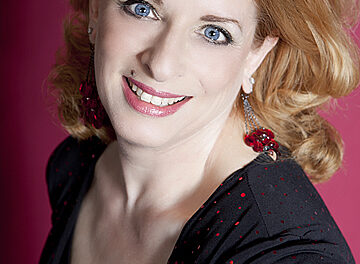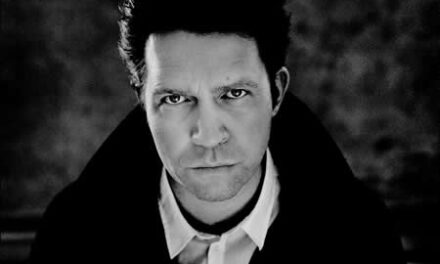The Collegium Musicum is an organization of Duke undergraduate and graduate students and other interested members of the community devoted to the performance of early music for various groups of voices and instruments. Under the direction of Roman M. Testroet, this 18-voice a cappella ensemble presented a clever, instructive, and pleasurable concert titled “Juggling Voices – The Craft of Polyphony.”
To present something of a visual illustration of polyphony in action, the ensemble called on two accomplished jugglers from Cirque de Vol Studios in Raleigh. With 14 years of object manipulation experience and performance, Adam Dipert is currently also conducting his dissertation research in the TUNL (Triangle Universitiies Nuclear Laboratory) facility at Duke. Jeremy Lewis, juggler for two years, is currently building up his repertoire of circus skills at Cirque de Vol Studios in Raleigh.
Music on the program was from a variety of Renaissance masters of polyphony; each selection adding an additional voice part to the number in the previous selection. At the same time the jugglers added one more item (a ball or a club) to each of their accompanying performances.
The first selection was by Robert Wylkynson (c.1450-1515) who was one of the composers of the Eton Choirbook. “Jesus autem transiens/Credo in Deum” is a setting of the Credo as a 13-voice canon, which could also be performed as a through-composed setting for solo voice. It was presented in a divided chancel format and sung by solo voices with the last phrase sung homophonically. During this rendition, Dipert moved a ball through the air in a manner that made it seem to be actually floating.
The two-voice motets were Orlando di Lasso’s “Beatus homo,” “Oculus non vidit,” and “Beatus vir” – settings of three Biblical texts related to wisdom. Men’s and women’s voices were mixed in a variety of combinations, but never more than two parts at a time.
The three-voice example was “Ave verum corpus” by Josquin des Prez (c. 1450-1521) in which the cantus firmus began in the middle voice with the newly composed elaboration voices soaring around it. The jugglers’ balls soared into the air floating with the polyphonic genius of the composer.
Next came Johannes Okeghem’s exquisite “Alma Redemptoris,” one of the most beautiful four-part motets to appear in the Renaissance. Four individual parts are woven with intricate interaction, each of equal persuasiveness, blended into a rich tapestry of sound. The chorus seemed to achieve their best quality in this rendition: fully warmed up, in tune, aware of individual lines as well as the magnificent blend of vibrant vocal colors.
The next selection left the realm of sacred music to allow us to enjoy one of the intriguing madrigals of the English composer John Wilbye (1574-1638). “Oft Have I Vowed” is a five-part song typical of the anguish-and-bitter-sorrow-of-unrequited-love type of madrigal. It allows the composer to use all of his technical skill to express these dramatic emotions.
To illustrate the growing complexity as more voice parts are added, Orlando di Lasso (c.1530-1594) was called upon again. “In monte Oliveti” is a setting of the prayer of Jesus in the garden after the last supper. Six clubs were tossed and manipulated in other ways by Dipert and Lewis to portray the flow of the six-part polyphonic motet. The activity was fascinating.
The 7-voice motet was “Ego flos campi” by Jacob Clemens non Papa and for the 8-voice polyphonic genius we moved to late 17th century England and Henry Purcell’s masterful “Hear My Prayer.” Here we have eight voices functioning independently combining into a glorious English harmony that tantalizes the spirit with inspiration and devotion.
For the conclusion of the concert the audience was given a broadside of the opening piece: Robert Wylkynson’s Jesus autem transiens/Credo in Deum scored as a 13-voice canon and invited to join in – either as jugglers or as singers. There were actually a few who chose to juggle and the rest of us did what we could to follow the music. I have to admit I didn’t make it all the way through, but it was a fine experience trying.
The evening included some fine singing, an interesting perspective on polyphonic vocal music and some skillful juggling. All in all it was an evening uniquely well spent and a rare pleasure.












